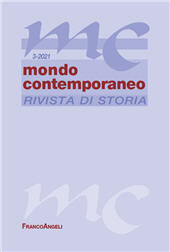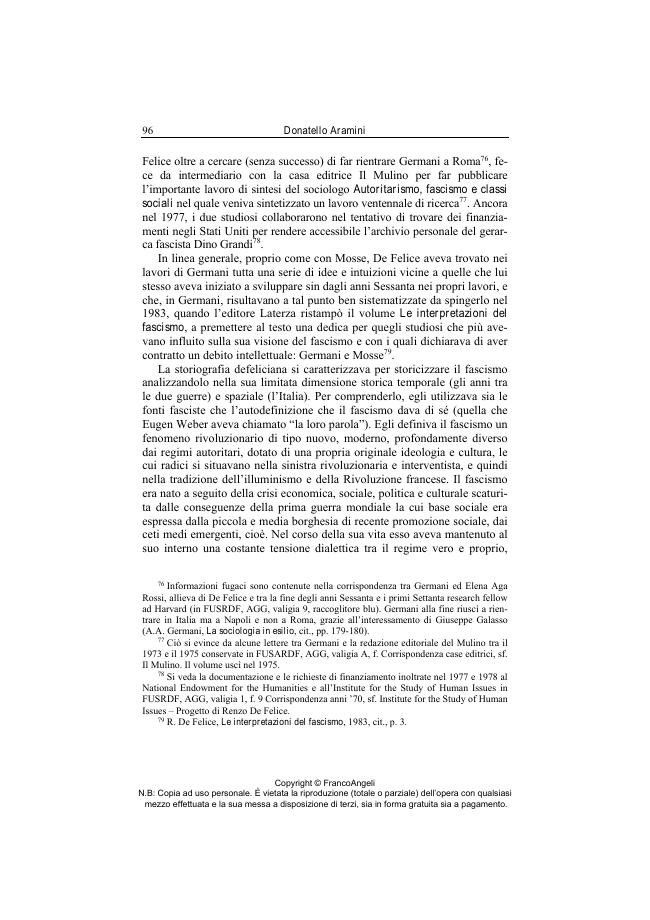Gino Germani, Renzo De Felice e le interpretazioni del fascismo a partire dagli anni Sessanta
P. 79-113
Renzo De Felice e Gino Germani sono stati due protagonisti assoluti del dibatti-to sulle interpretazioni del fascismo. A 100 anni dalla marcia su Roma e con il termine fascismo tornato al centro del dibattito mediatico e della polemica politi-ca, l'articolo riflette sul contributo fornito dai due studiosi, ripercorrendo anche al-cuni momenti chiave del loro intenso rapporto di collaborazione scientifica. L'autore inserisce la loro opera all'interno dell'ampio dibattito internazionale emerso dagli anni Sessanta sulle caratteristiche e i confini del fascismo generico. Egli così evidenzia non solo come De Felice e Germani abbiano dialogato con la storiografia internazionale sul fascismo ma come quest'ultima abbia in gran parte confermato spunti, suggestioni e impostazioni presenti nei loro lavori.
Negli ultimi anni, tuttavia, queste le conclusioni dell'autore, è emersa una nuova tendenza storiografica, influenzata dalla teoria postcoloniale e dagli studi transnazionali, che di fatto si allontana dalle interpretazioni fornite a partire dagli anni Sessanta e tende nuovamente a sfumare i contorni del fenomeno. [Testo dell'editore]
Renzo De Felice and Gino Germani were two of the most important scholars of fascism. 100 years after the march on Rome and with the term of fascism back at the center of media and political debate, the article analyses the contribution pro-vided by the two scholars, highlighting some elements of their scientific collaboration. The author places De Felice and Germani's work within the international debate that emerged since the 1960s about the characteristics and boundaries of generic fascism. He stresses not only the dialogue between the two Italian scholars with the international research on fascism but also shows that the latter has con-firmed ideas, suggestions, and interpretations suggested by De Felice and Germani's works.
The author concludes by stating that in recent years a new historio-graphic trend influenced by postcolonial theory and transnational studies has emerged, which ends to move away from the interpretations provided since the 1960s and tends to blur again the contours of the fascist phenomenon (both spatially and temporally), diluting its peculiarities and individuality, and thus reinserting fascism in the macro group of authoritarian and anti-democratic regimes. [Publisher's text]
-
Articoli dello stesso fascicolo (disponibili singolarmente)
-
Informazioni
Codice DOI: 10.3280/MON2021-003004
ISSN: 1972-4853
MATERIE
PAROLE CHIAVE
- Renzo De Felice, Gino Germani, interpretazioni del fascismo, fascismo generico, storiografia sul fascismo, studi postcoloniali e transnazionali
- Gino Germani, Renzo De Felice, Fascism, modernization, democracies, nation



